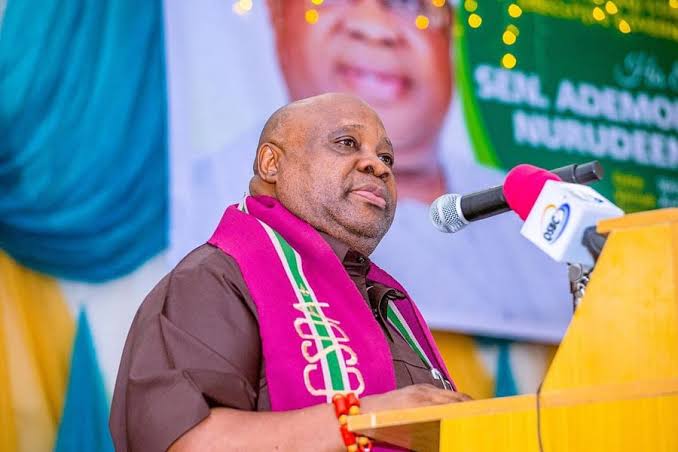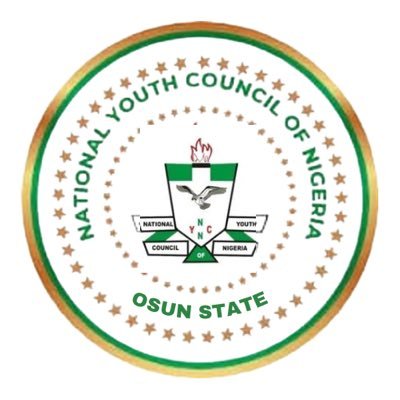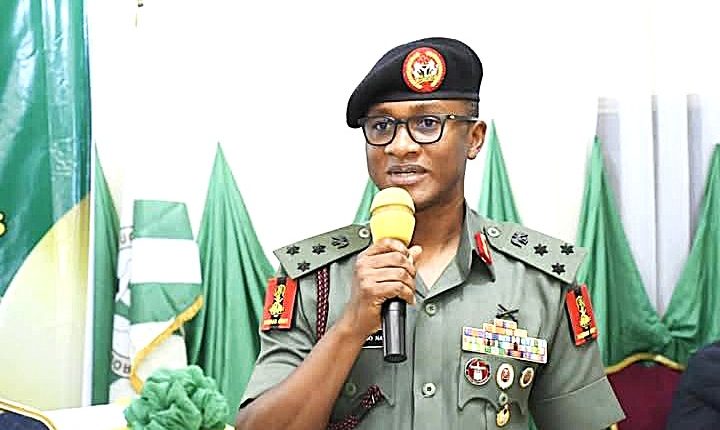The Lagos State Government on Tuesday released the White Paper on the #EndSARS Panel of Inquiry report.
According to the government, 11 out of the 32 recommendations made by the panel, have been accepted, six others were accepted but with modifications, while one was rejected.
The document also says 14 of the recommendations fall outside the powers of the state and will consequently be forwarded to the Federal Government for consideration.
A leaked version of the report had indicted the Nigerian Army and the Lagos State Government in the killing of unarmed protesters and a subsequent cover-up of the incident at the Lekki Toll Gate on October 20, 2020.
But after the panel submitted its findings to Governor Sanwo-Olu, he set up a four-member committee led by the Lagos State Attorney-General and Commissioner for Justice, Mr. Moyosore Onigbanjo (SAN), giving them two weeks to raise the White Paper on the reports submitted by the panel.
At a press briefing earlier on Tuesday, the Governor said the leakage was “regrettable”.
“While I commend the panel for undertaking its task to the best of its abilities, it is however regrettable that the panel’s work and the leakage of an unauthorized version of the report have generated much tension. Sadly, a deep wound has been reopened,” he added.
The governor, however, assured Lagosians that his administration remains committed to justice and truth.
Speaking further, he announced that he had initiated a peace walk as part of efforts to ensure harmony in the state.
“To quicken recovery and engender a better understanding, I will lead ‘A Walk for Peace’ in December to herald the healing of the land.
“I have extended an open invitation to the youths, members of the diplomatic corps, civil society groups, students and the media, as well as other stakeholders to join me in this peace walk,” Sanwo-Olu said.
White Paper Details
One of the White Papers focused on the JPI’s report on the Lekki Toll Gate incident of October 20, 2020.
A leaked version of the JPI report had indicted the Nigerian Army and the Lagos state government in the killing of unarmed protesters at the Lekki Toll Gate and a subsequent cover-up.
But, in its White Paper, the Lagos state government maintained that there was no massacre at the Toll Gate and denied orchestrating a cover-up.
Below are the 32 recommendations of the JPI and how the State Government responded:
1. The Panel recommended that the police should be adequately funded, effectively trained, and provided with the requisite accouterments and equipment. It also recommended a better and more harmonised communication system with all security apparatus of the state; and better welfare packages for police officers, including improved salary, well-equipped offices, provision of decent accommodation, and transportation
LASG says it notes this recommendation and will forward this recommendation to the Federal Government and other necessary agencies. It adds that it has supported and will continue to support the Lagos Command of the Nigeria Police Force through the Lagos State Security Trust Fund.
2. The Panel recommends disciplinary action to the following officers – Lt Col S.O Bello and Major General Godwin Umelo, who refused to honour its summons in order to frustrate the investigation.
LASG notes it will forward this recommendation to the Federal Government, the National Economic Council, and Nigerian Army for their consideration.
3. The Panel recommends that all officers (excluding Major General Omata) men of the Nigerian Army that were deployed to the Lekki Toll gate on October 20, 2020, should be made to face appropriate disciplinary action, stripped of their status, and dismissed as they are not fit and proper to serve in any public or security service of the nation.
LASG notes that the Nigerian Army is an organisation that has its own disciplinary procedures and processes as set down by law, over which it has no control. Nevertheless, it will forward this recommendation to appropriate authorities for their consideration and action.
4. The Panel recommends that all those arrested in the course of the protest should be granted bail, prosecuted for any offence that may be alleged against them, or where no prima facie evidence of culpability is disclosed upon due investigation, they should be released forthwith.
LASG notes that the issue of grant of bail is a matter within the exclusive preserve of the Judiciary, but notes the recommendation.
5. The panel recommends that the Nigeria Army be discouraged from intervening in internal security.
LASG notes that section 217(2)(c) of the constitution states that the Armed Forces may “intervene to suppress insurrection and also to assist civil authorities to restore lawful order” which had clearly broken down in Lagos between 19th – 21st October 2020. Such intervention must however be with clear rules of engagement, it adds.
6. The panel, having found that the use of social media played significant role in escalating the crises and appeals for restraint in spreading unverified pieces of information to the general public.
LASG agrees with this recommendation and notes that the incident at Lekki Toll Gate on October 20, 2020, was exacerbated by indiscriminate dissemination of unverified accounts of the events of that day. It says it will launch a campaign to sensitise the public on the use of social media and the inherent dangers in its abuse.
7. The Panel commends several hospitals and all the medical personnel that attended to the victims of gunshot wounds at the Lekki Toll Gate and treated all of them free of charge. The Panel recommends them for special awards by the Lagos State and Federal Governments.
LASG notes that it commends all medical personnel and hospitals that treated citizens who suffered injuries during the protest. However, it disagrees that hospitals treated victims of gunshot wounds from Lekki Toll Gate in the light of the evidence before the Judicial Panel of Inquiry (JPI), that only one person suffered gunshot injury from Lekki Toll Gate at 7:43 pm on October 21, 2020.
8. The Panel recommends that the commitment made to the hospitals by the Lagos State Government through the Governor and the Commissioner for Health for the payment of the hospital bills of the #EndSARS protesters should be fulfilled.
LASG notes that it has paid all hospitals. It however commends Reddington Hospital which rendered its services free of charge.
9. The Panel recommends that the DPO of Maroko Police Station along with policemen deployed from the station on October 20 and 21, 2021 be prosecuted for arbitrary and indiscriminate shooting and killing of protesters.
LASG notes that even though the evidence before the JPI does not establish arbitrary and indiscriminate killing of protesters at Lekki Toll Gate, it will request the police to further investigate the matter and furnish the Director of Public Prosecutions in Lagos State with the case file of the matter within 90 days. It also enjoined members of the public who have credible evidence of the allegations against the DPO of Maroko Police Station and policemen deployed from there to submit such evidence to the office of the DPP within the same time frame.
10. The Panel recommends that a Grievance Address mechanism should be improved upon to engender speedy attention and action.
LASG accepts this recommendation and will intensify its effort to engage the youths as it has been doing through the Youth/Police Dialogue and Youth Peaceful Conflict Resolution programme.
11. The Panel recommends that Government should engage regularly with youths and be proactive and responsive when tense situations arise.
LASG accepts this recommendation and will intensify efforts to engage the youths and be proactive in all situations. It adds that dialogue with youths is ongoing and is a continuous process.
12. The panel recommends that curfew regulations should be widely publicised.
LASG accepts this recommendation.
13. The panel recommends reorientation and training of police and security personnel on the handling of crime scenes.
LASG notes that it will forward the recommendation to the Federal Government for consideration and also reaffirms its commitment to resuscitate the Lagos DNA & Forensic Centre (one of whose components is a Crime Scene Lab) looted and destroyed during the October 21, 2020 carnage.
14. The Panel recommends that Coroner inquests and autopsies should be done in cases of suspicious death within a maximum of one month of occurrence of the incident.
LASG notes that there is already in place a robust Coroner Systems law in the state.
15. The Panel recommends that there should be guidelines and standard procedures for mortuaries on information to be requested and documentation is done in cases of bodies brought to them.
LASG says it notes that it has in place standard operating procedures for mortuaries, but in the light of lessons learned during the protests and its aftermath, it will improve on its SOPs in line with best practices.
16. The Panel recommends training of health officials, particularly LASEHMU.
LASG says it accepts and will provide further training and capacity building for its health officials, particularly Lagos State Environmental Health Monitoring Unit (LASEHMU).
17. The Panel recommends training and retraining of all security officials, including Civil defense, Police and the Army on rules of engagement and management of protest.
LASG notes it will forward the recommendation to the Federal Government for consideration. It adds that it is committed to continuous training of its law enforcement agencies.
18. The Panel recommends that the situation of the integrity of the scene of the incident must be preserved and items of physical evidence should not be removed between the time-lapse from the incident and scene examination in any other situation.
LASG accepts this recommendation and will forward the recommendation to the Federal Government for consideration. It also reaffirmed its commitment to resuscitating the Lagos DNA & Forensic Centre.
19. The Panel recommends that the Lekki Toll Plaza be made a memorial site for #EndSARS protest, by renaming to ‘#EndSARS Toll Gate.’
LASG notes that it will designate a park in the State and name it ‘Peace Park’ to serve as a reminder to citizens of the peaceful protest all over the State against abuse of human rights.
20. The Panel recommends that October 20 should be designated as “Toll Free Day” at the Lekki Toll Gate as long as the tollgate exists.
LASG notes that in the spirit of healing and reconciliation, it accepts the recommendation.
21. The Panel recommends that October 20 should be made #EndSARS day nationally for the remembrance of our fallen youth.
LASG notes that it has no powers to declare any day as a national day and adds that the recommendation will be forwarded to the Federal Government.
22. The Panel recommends that for the purpose of restitution, healing, and reconciliation, the Federal Government needs to publicly apologise to the youth for abruptly undermining the protest with their state actors.
LASG says it notes and will forward the recommendation to the Federal Government for consideration.
23. The Panel recommends that the government should do all it can to bridge the gap of distrust with the Youth.
LASG accepts this recommendation and notes that the process has already commenced.
24. The Panel recommends that a monument memorialising the lives lost and those injured at the Lekki Toll Gate with the names inscribed on the Monument.
LASG notes that this recommendation is not acceptable to it because it is unable to accept the finding that nine people died at Lekki Toll Gate on October 20, 2020. It also notes that there was no massacre at Lekki Toll Gate, contextual or otherwise. It adds that the finding of the JPI that nine people died from gunshots fired by the Military are based on assumptions and speculations.
25. The Panel recommends the establishment of a standing committee to bridge the gap between the society and the police via information gathering, community engagement, youth sensitisation, prompt intervention on issues that require intelligence-led policing, and community policing principles for the review and action of the State Commissioner of Police.
LASG notes and will forward the recommendation to the Federal Government and National Economic Council.
26. The Panel recommends that the scrutiny of all disciplinary processes of the Nigerian Army and the police be made transparent and outcomes made public periodically.
LASG says it notes and will forward the recommendation to the Federal Government and National Economic Council.
27. The Panel recommends that the Complaint Response Unit of the Police at the FHQ must be reinforced to scale up its national responsibilities in prompt engagement and treating public complaints against erring officers across the country to avoid conflagration.
LASG says it notes and will forward the recommendation to the Federal Government and National Economic Council.
28. The Panel recommends that any data that may have been generated over the years on the impunity of the police across Nigeria be studied and deployed as early warning signs (EWS) mechanism.
LASG says it notes and will forward the recommendation to the Federal Government and the National Economic Council.
29. The Panel recommends that compensation to the victims in cases emanating from the Lekki incident of October 20 be facilitated and promptly distributed to ensure justice is served and seen to be served for accelerated healing to win the peace and build public trust.
LASG says it notes and will forward the recommendation to the Federal Government and the National Economic Council.
30. The Panel recommends a special trust fund for compensation of victims of the Lekki Toll Gate incident of October 20, 2020, and other established and proven human rights abuses.
LASG says it will take steps to forward the recommendation to the Federal Government and the National Economic Council.
31. The Panel recommends that the Lagos State Assembly should set up a standing Human Rights Committee or Tribunal made up of representatives of the Nigeria Police, Ministry of Justice, National Human Rights Commission, Office of the Public Defender, Legal Aid Council, CSOs, and other relevant stakeholders with a mandate to receive and make determinations in respect of complaints made against the Nigerian police and other security agencies.
LASG notes that it will take appropriate legislative actions to establish a standing Human Rights Committee comprising of members of civil society, the Nigerian Bar Association, Office of Public Defender, and security agencies.
32. The Panel recommends that all petitions filed before the panel but that could not be heard due to time constraints should be channeled through the Ministry of Justice to the Standing Human Rights Committee or Tribunal.
LASG says it notes and accepts this recommendation.
(Pieced together from reports by Channels TV)
Advertisement





